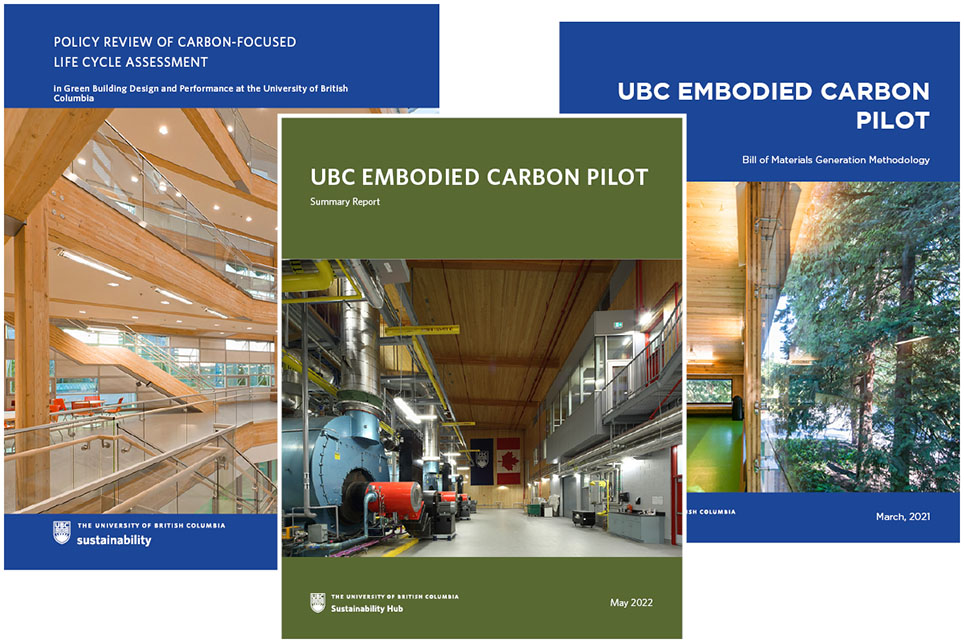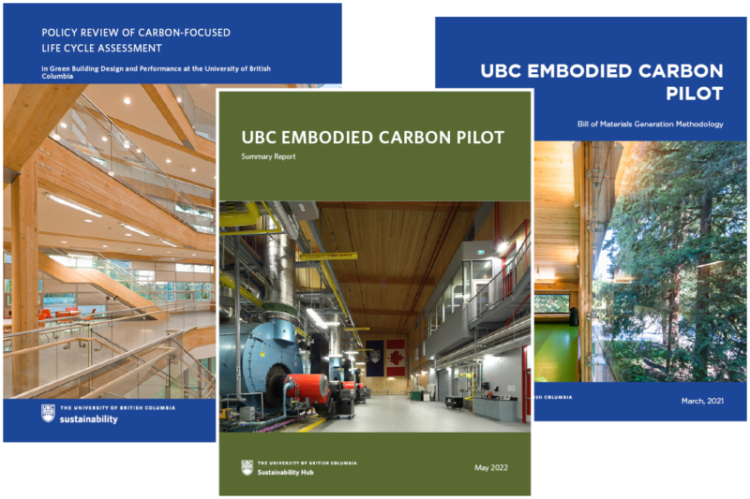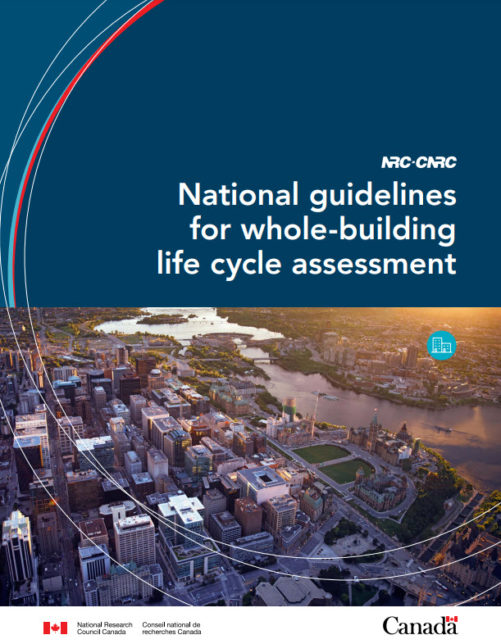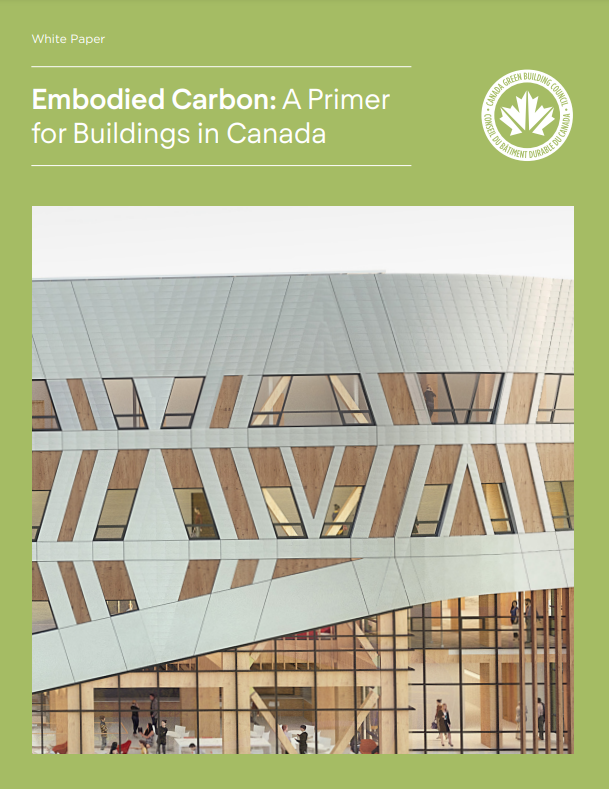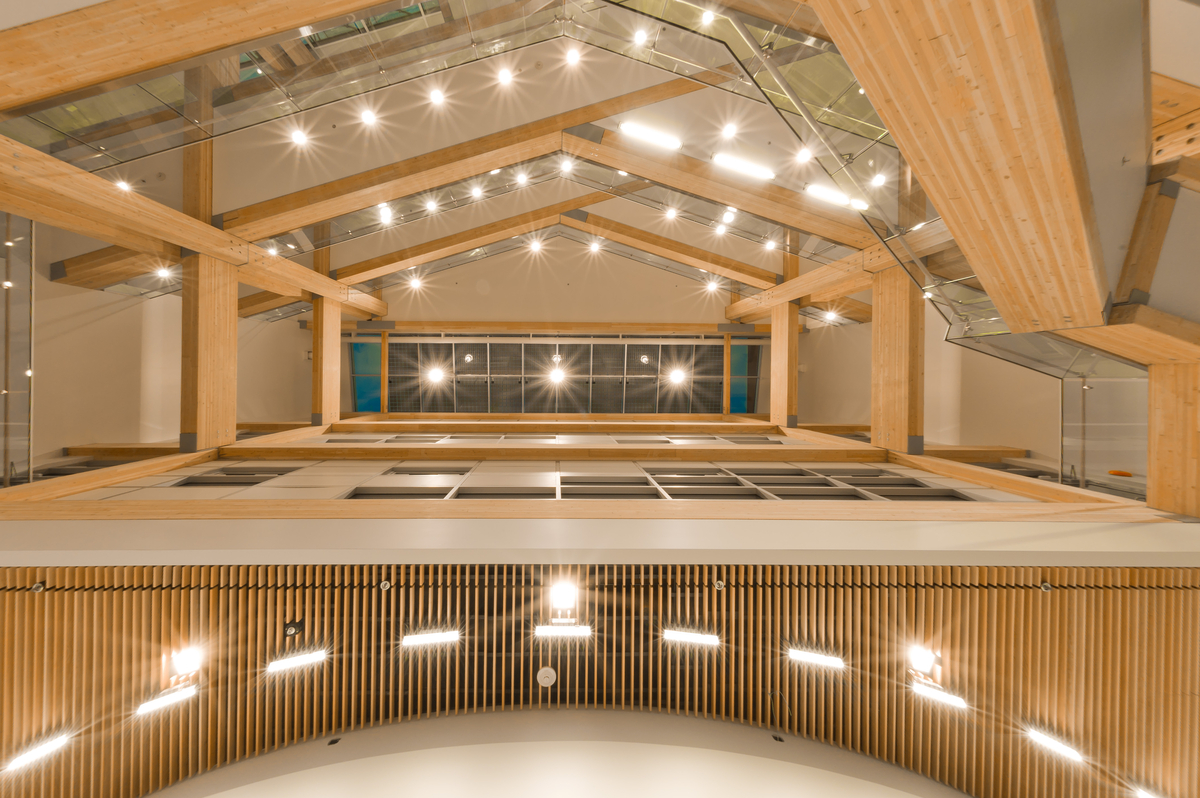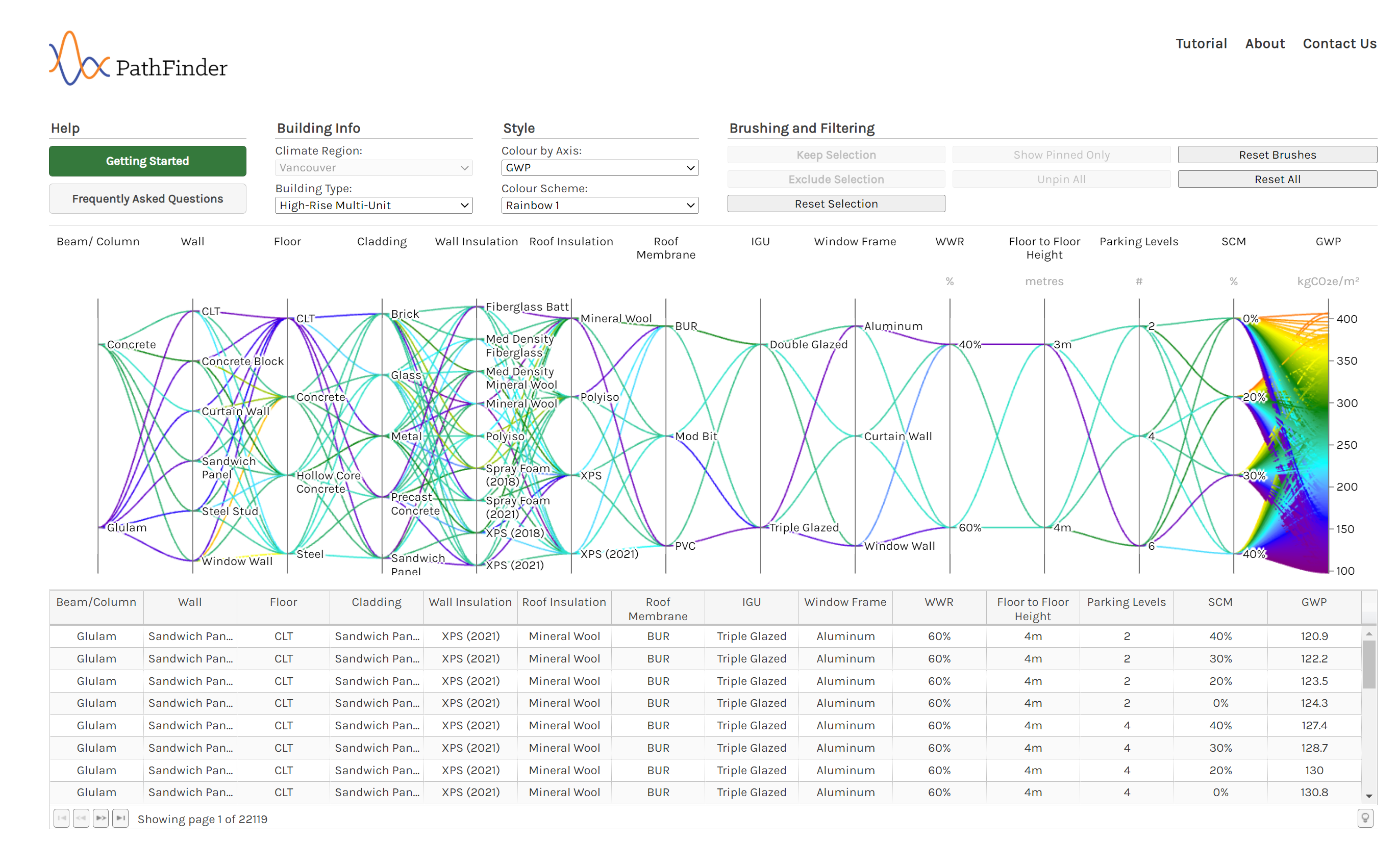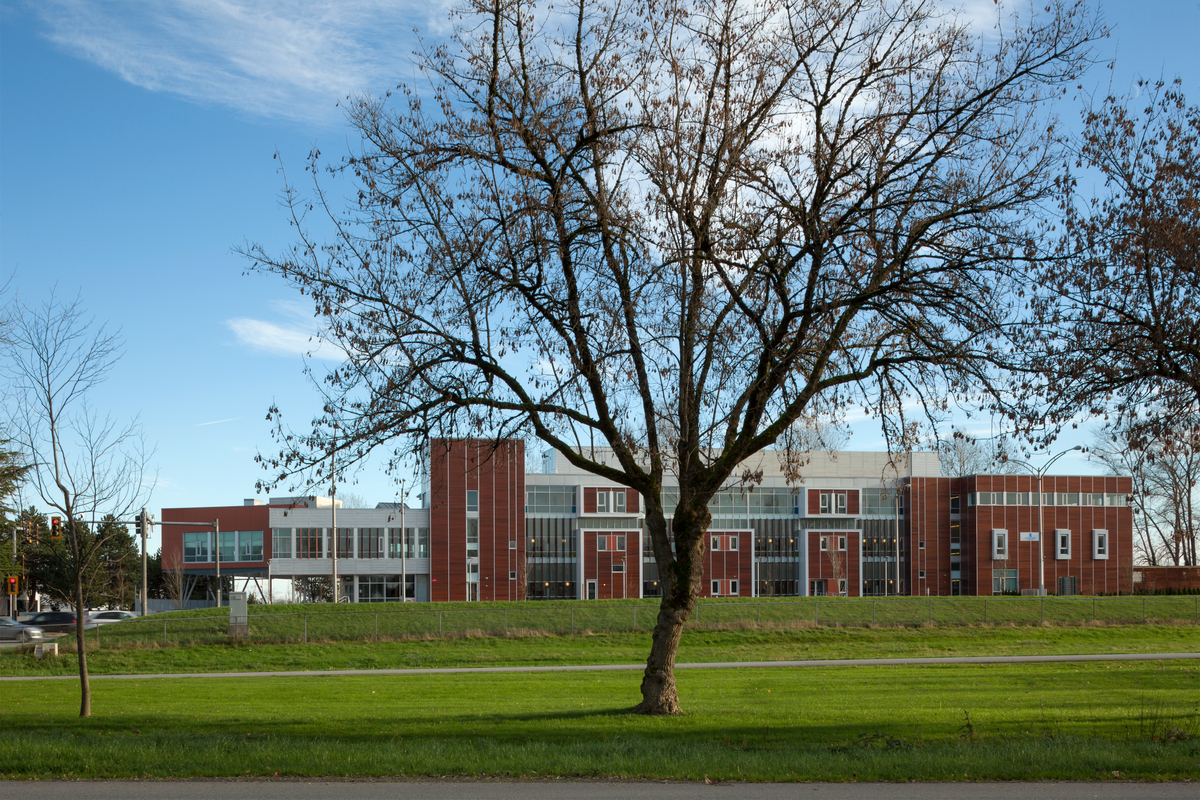Addressing embodied carbon in buildings through LCA
The UBC Embodied Carbon Pilot, conducted by The University of British Columbia’s Sustainability Hub, was a multi-year research study on the practice of conducting life cycle assessments (LCAs) for quantifying embodied carbon emissions from building materials. Concluded in 2022, the objective of the Pilot was to identify issues and solutions for enabling more effective use of LCA in reducing embodied carbon on buildings on and off campus.
Key Learnings
- There are multiple factors that affect the consistency, reliability, and variability of whole-building LCA (wbLCA) results, which means these results are rarely comparable. For this reason, it is important to determine the parameters for the assessment, such as the goal, scope, material data sources and assessment tool, at the beginning, ideally even before starting to collect project data.
- There is a need for more standardization regarding data collection, LCA methodology, reporting and benchmarking to advance wbLCA practice and policy for reducing embodied carbon in the built environment.
- Creating the bill of materials—the key user input for a wbLCA—requires a structured process to facilitate reliability, accuracy, and comparability of results. The proposed bill of materials generation methodology aims to address the need for more detailed guidance for BoM-based wbLCAs.
